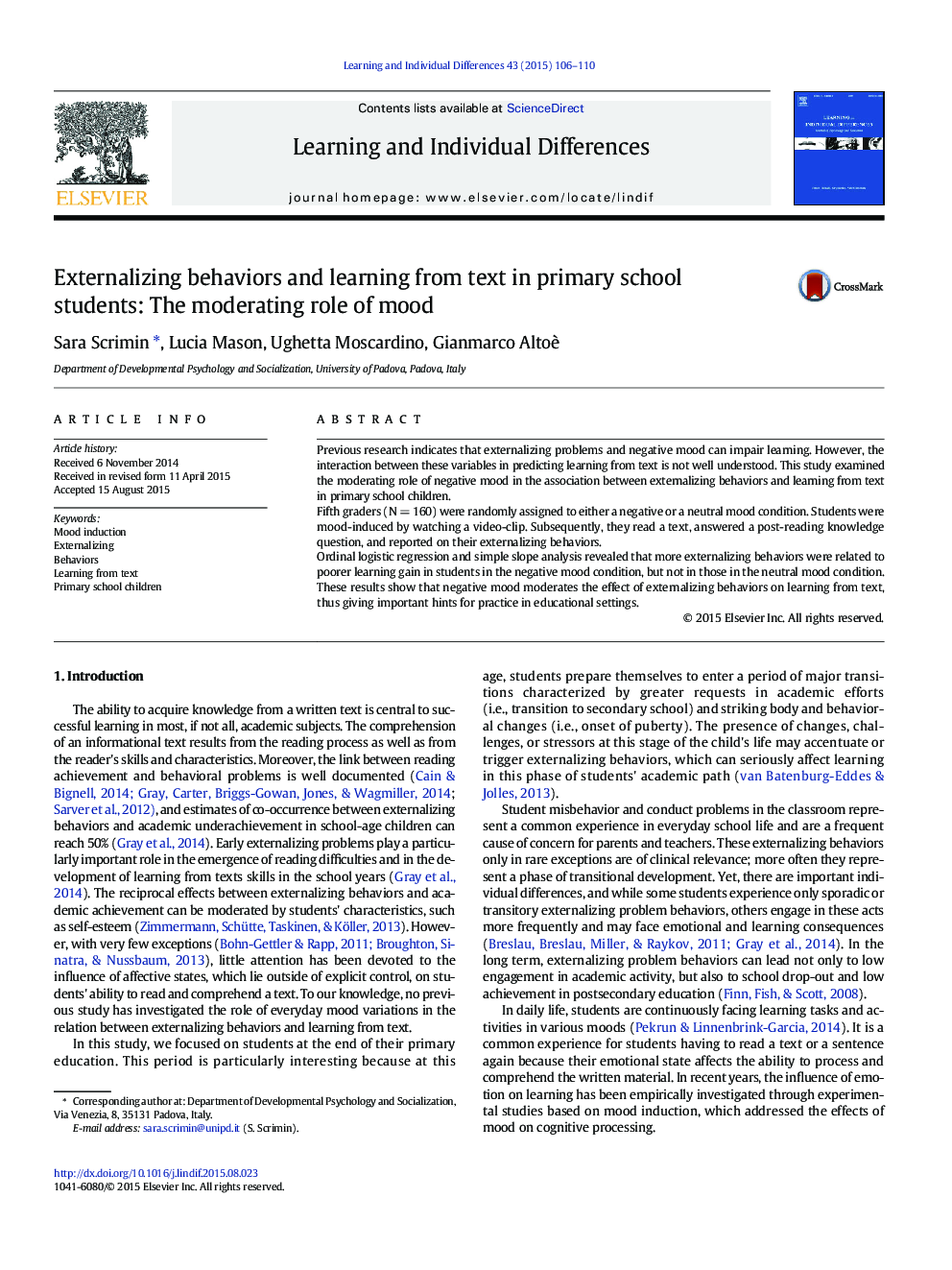| کد مقاله | کد نشریه | سال انتشار | مقاله انگلیسی | نسخه تمام متن |
|---|---|---|---|---|
| 364656 | 621080 | 2015 | 5 صفحه PDF | دانلود رایگان |
• Students in a negative mood learn less from text than students in a neutral mood.
• Externalizing behaviors are related to poorer learning gain in fifth grade students.
• Negative mood moderates the effect of externalizing behaviors on learning from text.
• Negative mood is a risk factor for students with higher externalizing behaviors.
Previous research indicates that externalizing problems and negative mood can impair learning. However, the interaction between these variables in predicting learning from text is not well understood. This study examined the moderating role of negative mood in the association between externalizing behaviors and learning from text in primary school children.Fifth graders (N = 160) were randomly assigned to either a negative or a neutral mood condition. Students were mood-induced by watching a video-clip. Subsequently, they read a text, answered a post-reading knowledge question, and reported on their externalizing behaviors.Ordinal logistic regression and simple slope analysis revealed that more externalizing behaviors were related to poorer learning gain in students in the negative mood condition, but not in those in the neutral mood condition. These results show that negative mood moderates the effect of externalizing behaviors on learning from text, thus giving important hints for practice in educational settings.
Journal: Learning and Individual Differences - Volume 43, October 2015, Pages 106–110
